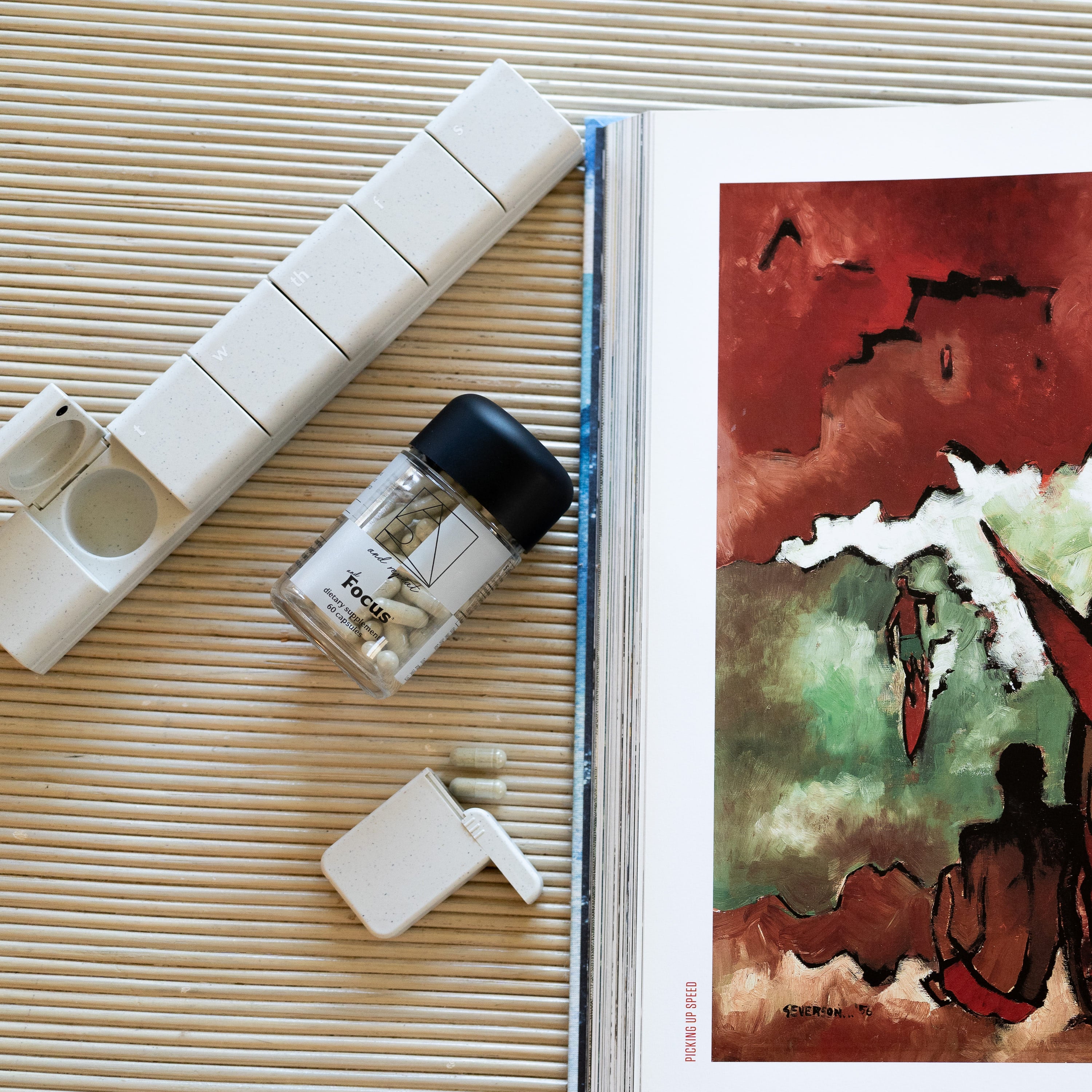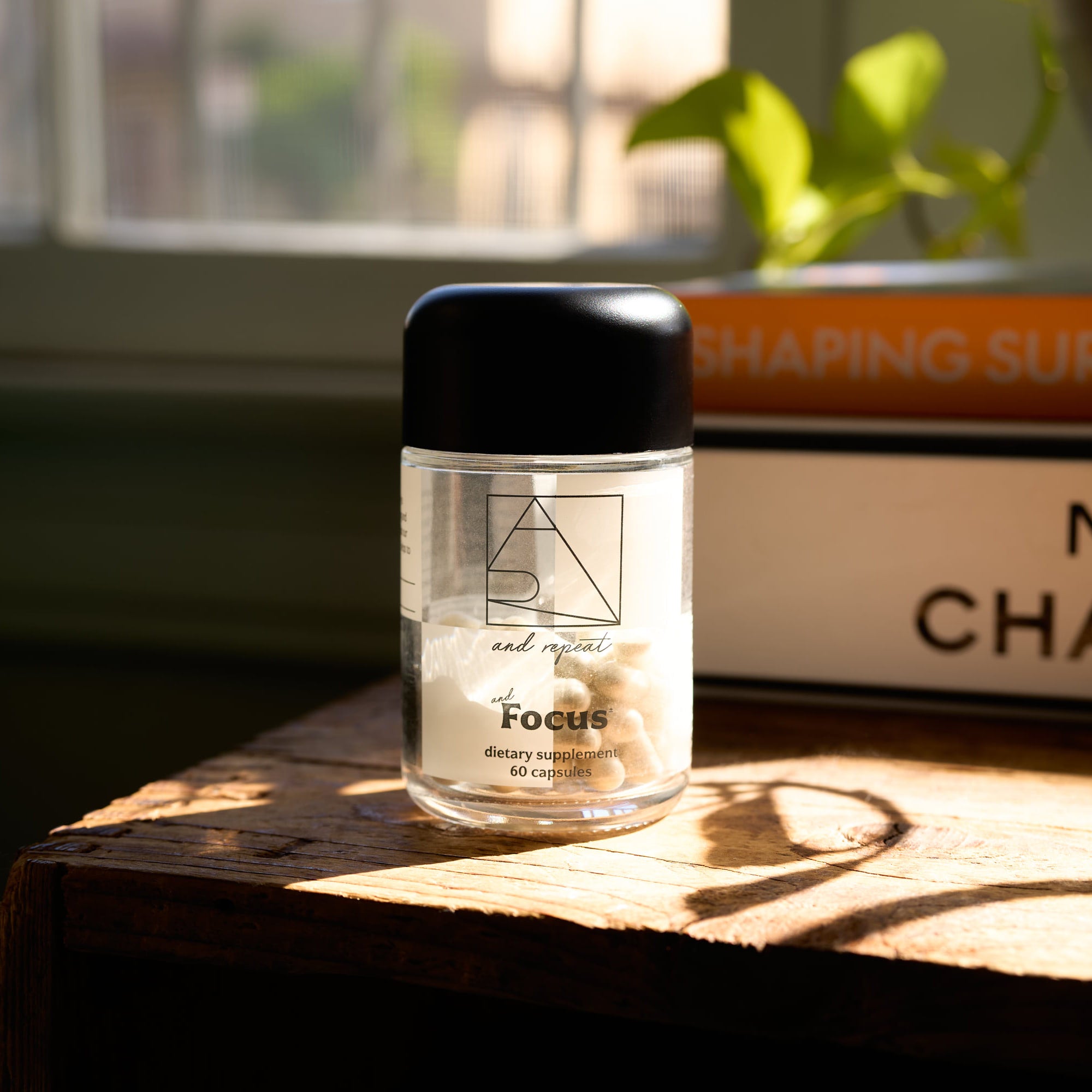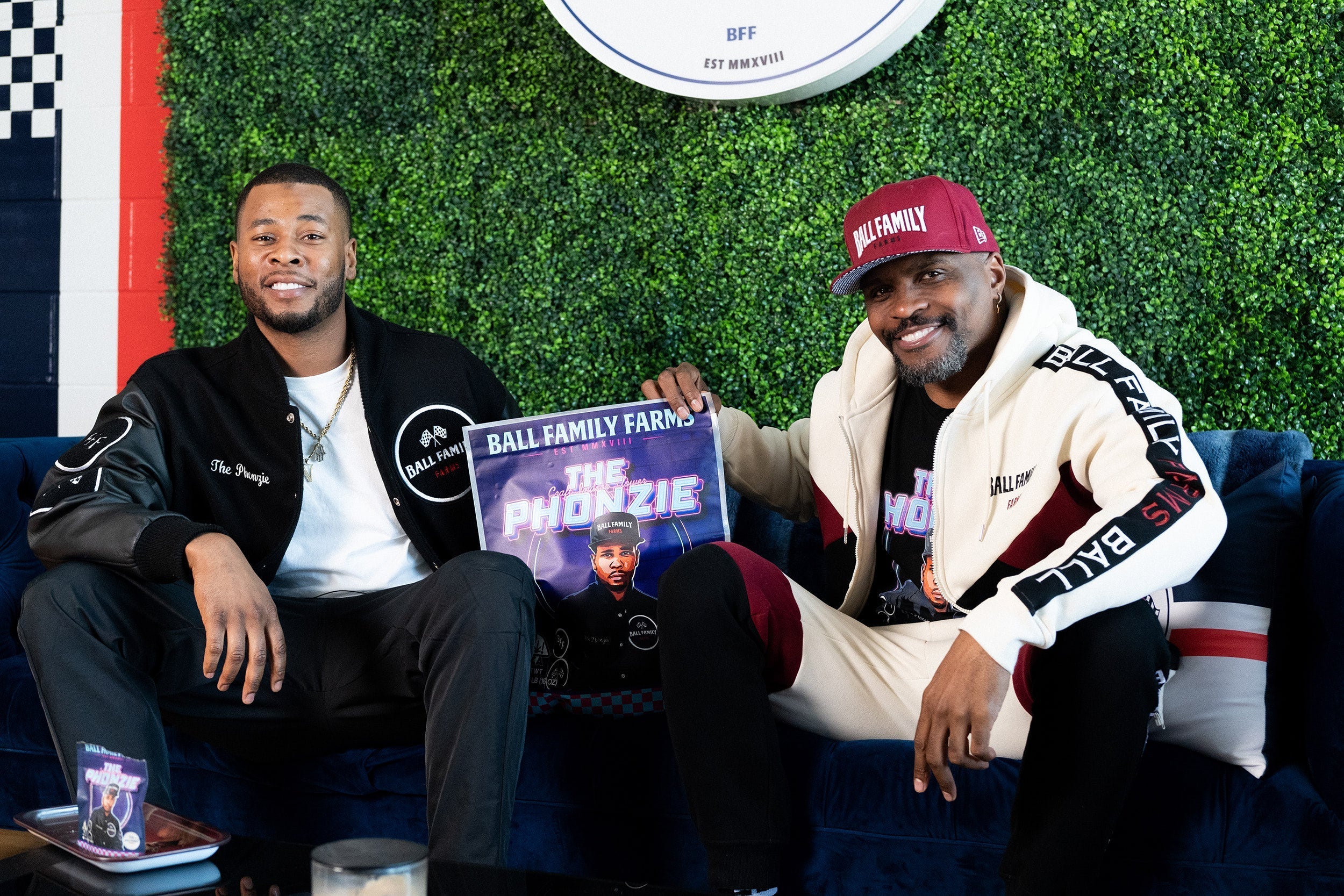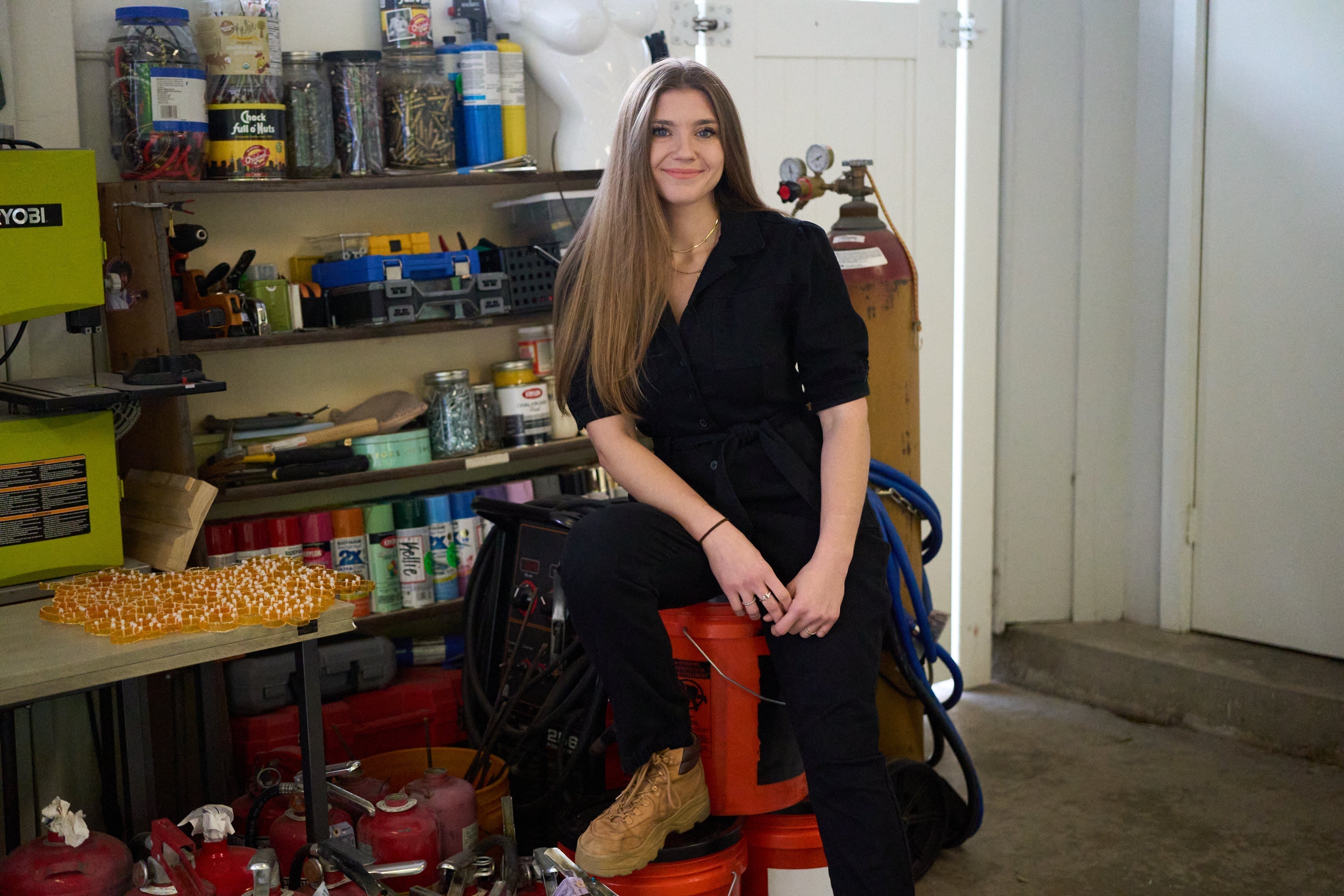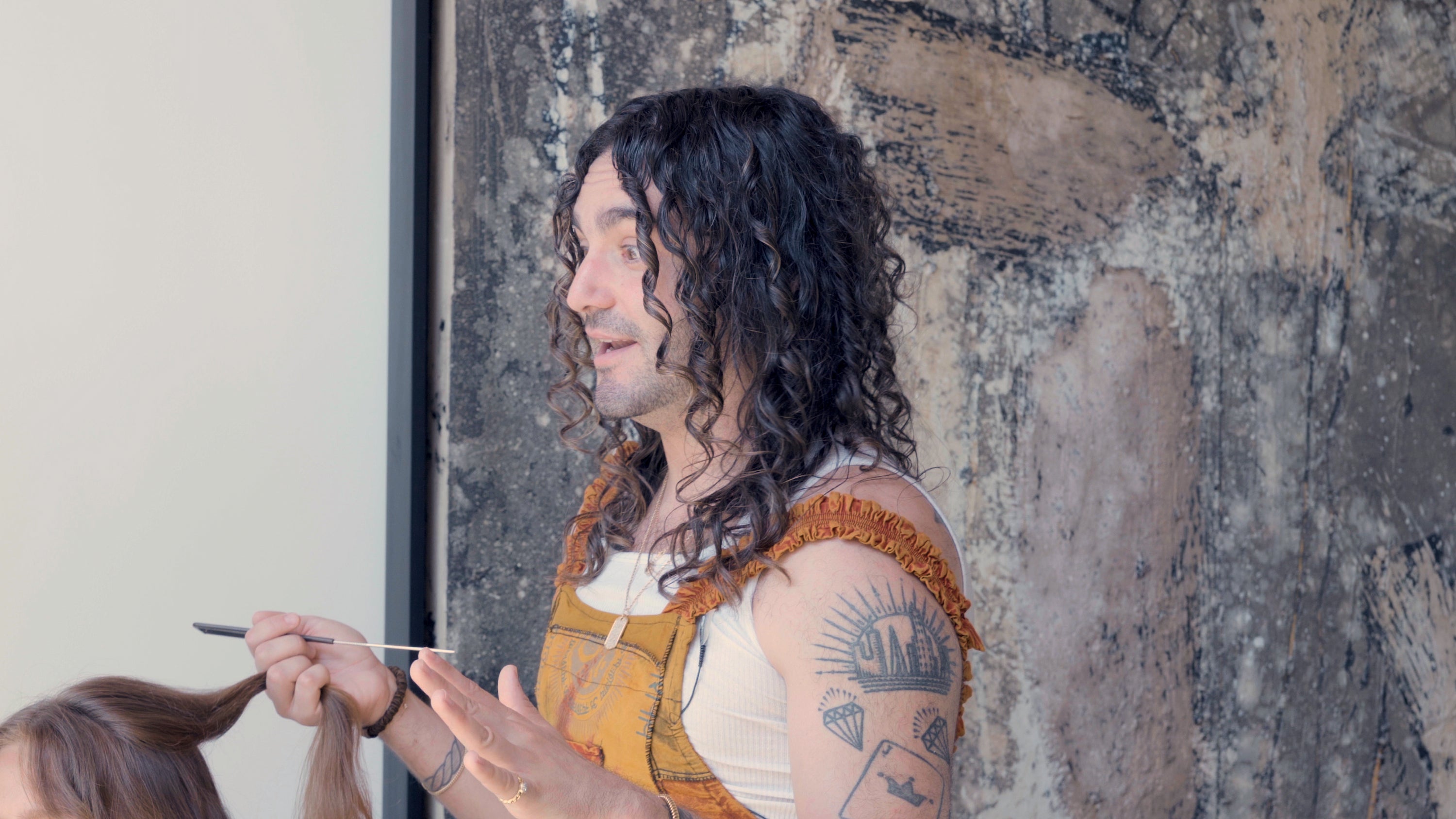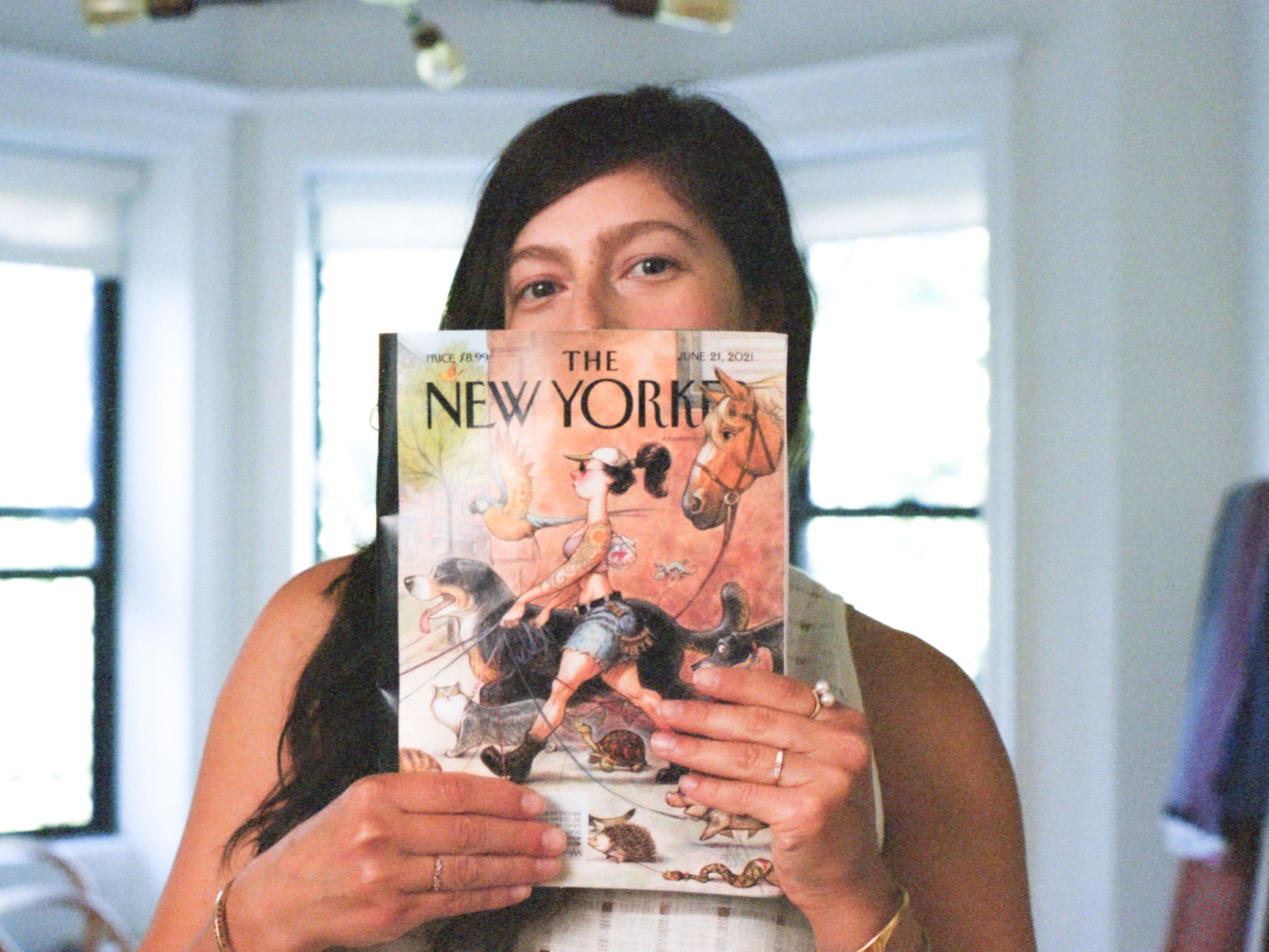Chris is the CEO of Ball Family Farms, who believes it’s okay to get some therapy. It’s okay to talk about your problems with somebody, and you don’t have to internalize everything. And J. Alphonse is an actor, musician, and brand ambassador for Ball Family Farms who believes he’s here to remove the stigma of smoking cannabis and regulate it in a way where it’s normal.Together they crafted a strain of cannabis to ease anxiety and they’ve formed a unique partnership and friendship in the process.
Chris, you’ve had a long history of selling cannabis. And obviously, you’ve built Ball Family Farms into this really incredible lifestyle brand. So what was the impetus to launch and was this the path you thought you would go down?
Chris Ball: No, I did not think this was the path I was going to go down. I actually thought I was going to be a professional football player for 10 years and make all kinds of crazy money and retire with a family. When that didn’t happen, I found myself in Canada playing in the CFL (Canadian Football League), and I discovered cultivation for the first time. That’s when I fell in love with the cannabis process itself. I had been selling weed since I was 16, but I’d never really tapped into the cultivation aspect of it.
It was more of a monetary thing that I used to take care of myself. So once that happened, my status in the listed market started to grow because of my trafficking weed from Canada to the United States. That’s when my federal indictment came down. I got my felony and I started on my journey of rehabilitation. While I was in prison, I had an interesting conversation in the law library with two gentlemen. We broke down the numbers of what I was doing and why I was selling so much cannabis for someone else instead of myself. I was a middleman at that point. Once that light bulb went off in my head, I thought, when I get out of here, I’m going to try to do this the correct way and grow myself and maybe try to do something where I can take care of my family on my own instead of working for someone else.
When I got out, I started on that journey. And during that time, it was Prop D compliant, pre-ICO and I started learning how to grow and be a caregiver and take care of patients that were coming into dispensaries. Then I got introduced to the social equity program in 2018. That’s when Ball Family Farms was born. At that moment, I decided now that prop six, and four had been passed in legalization here in California, and it’s recreational, here’s my opportunity to turn this into something bigger, get my family involved, get my brother involved, my cousins, and maybe try to change the trajectory of our last name and create some generational wealth.
How did you two meet? What brought you together and why did you want to create the cannabis strain, The Phonzie?
J. Alphonse: We met in 2020 when I first moved out here (LA), and I was looking for a brand to shop with that would be really good. A friend at the time in New York, who was also in the industry, said, hey, listen, Ball Family Farms, they’re the top of the line. I want to introduce you to the gentleman who runs the company. It was a funny story. I ended up meeting someone else who I thought was Chris Ball and it was this young white brother that works for Chris. So he came to the door, me thinking it was a Black-owned business. So Chris comes in maybe 10 to 15 minutes later, right here in this office and we immediately had this connection. He knew me as an actor from P-Valley and I knew of him because of something I was very interested in, which is the cannabis industry.
We had a great conversation and I proposed to him to be a brand ambassador for his company. I said, listen, man, you should allow me to be the face of your company and be a brand ambassador and really help support this, but also eventually help me retire into this industry. It took us about two years to get to this point. But in August, we finally produced this product, which is the Phonzie and we birthed that from long conversations, a lot of smoking, and figuring out what was going to be the process of picking out these phenos. So we built a great relationship here in the office, getting our hands into cannabis. So it’s been a great, beautiful journey so far.
What makes this strain unique? Why did you want to create it and what goes into it? Describe the feeling you get from smoking it.
JAN: I fell in love with two original Ball Family strains, which is Laura Charles and the Bruce Leroy. I tell people The Phonzie smells like the Garden of Eden if you can imagine what that smells like and the feeling that it gives you. Bruce Leroy would always have me in this very glowy kind of up feeling, that I can conquer the day, very sativa. Laura Charles will give you a very similar feeling, but also you can relax a little bit and take your time. And so I wanted to combine those two because I have anxiety. And that feeling of those two strands really helped calm my anxiety at that time, more than any other strains I had tried before.
How does your anxiety manifest and what gives you anxiety? I’d love to know, for you as well, Chris, if that is something that affects you.
JAN: I didn’t realize I had anxiety until I became an adult. I thought it was, I’m sweating or my heart is beating kind of fast. I didn’t register that as anxiety and it made me nervous. But anxiety is different than being nervous. Anxiety is something that you don’t really think about and can’t quite control. If you’re nervous, there are certain things you can do to shake it off. But anxiety sometimes takes it a step further.
I’m an actor, but even eight shows a night, right before I step out onto that Broadway stage, there was something that would come over me where I’m like, this is not nerves. I’m getting sweaty and I’m breathing kind of hard. I’m overthinking what the situation may be. Also, in other situations in life, overthinking fatherhood or overthinking marriage, overthinking sometimes is a form of anxiety for me. So I found that cannabis was one of those things that resets my palette, resets my thought process, and allows me to breathe through these situations in a different way. Twenty-one or 22 was when I first realized that I had anxiety. But I started to use cannabis as a medicinal property later in my life, at 27 or 28. I’m 32 now.
In 2019, J. Alphonse, you posted a video of drumming on the street, and said, “Do what you love. I live by it. It feels good to be back in the streets.” Did you share the same type of anxiety when you were drumming on the streets as you do when you’re performing on stage or before going on set?
JAN: No, street drumming does something very similar to me that cannabis does. When I’m street drumming, everything goes away, literally. It’s just me and the buckets and the sound of the subways and oh, this is why I’m here. When you’re smoking cannabis as a feeling for a very specific purpose, I’m here to calm down and relax. So similar to being a musician; that’s what it did for me every day. That’s when I didn’t have the money to afford cannabis. Now, thanks to my brother here, I don’t have to pay for that anymore. So there wasn’t much anxiety there.
Sometimes and after a while I got used to it, but the looks that people give you, or people thinking that you’re homeless, or people trying to offer you some food, or I see a director that I really want to talk, but down here street drumming and not knowing how to even start the conversation or even ask. So that type of anxiety. But as far as being able to be peaceful and understand that everything was going to be okay, that’s what street drumming did for me. It provided that comfort.
Obviously, there are a lot of stereotypes and stigmas surrounding the cannabis industry. How do you both want to break that barrier, not just being something for euphoria, but also a medicinal tool?
CB: At Ball Family Farms, I’m really starting to transition into the wellness piece of my brand. The first four years, we targeted the culture because here I am, a social equity applicant. I am a Black CEO in the space. So we wanted to drive home my story and let people know why I deserve to be here, why our products are different than everyone else’s.
Our brand has true authenticity. J. Alphonse came into this space wanting something that would help him with his anxiety and that’s what we set out to do. We didn’t set out to find something cool, popping in the culture, or popping in rap videos. It was a different purpose. That’s why I agreed to make him our brand ambassador because it felt like it gave the brand depth to be able to reach out and help more people. So for us, we are moving into that wellness category. It’s the reason why we grow in living soil and why we’re organic farmers and we’re sustainable. We want to start telling those stories. We want people to go into a dispensary and look for Ball Family Farms and say you know what? This is real medicine.
Speaking of stigma, do either of you feel any shame or stigma around anything? do you both want to break that barrier, not just being something for euphoria, but also a medicinal tool?
JAN: No, not me. And I get that people do. I’m one of the few actors where I’m constantly having cannabis on my page and smoking in my stories. I’m a huge fan of Seth Rogen and how he pushes the medicinal use of it. But also, this has been going on for a long time. Everybody smokes pot, whatever you want to call it, cannabis, weed, but some people do feel like there’s a stigma behind showing their face and smoking. They might feel like I won’t get this job or I won’t be able to participate in this project. And so I’m here to make that not so much of a stigma and regulate it in a way where this is normal.
This is a question for both of you. What would you tell your younger selves in regard to your mental health?
CB: For me, I would tell my younger self, don’t play football. Stay away, pick up a basketball and stop that brain from hitting up against that skull. No, seriously. I think this; my fiancé doesn’t think it and people around me don’t think it and think I have a lot on my mind. But I start to think, do I suffer from CTE? I’ll walk into a room and forget why I came into that room. I sometimes find it a little bit hard for me to organize myself. If I’m in my bedroom and it’s messy, I can’t think. I’m very OCD. I have to go clean up everything and make sure I take care of this. And then I can sit down and go, okay, what is it that I need to do? I would also tell my younger self it’s okay to get some therapy.
It’s okay to talk about your problems with somebody. You don’t have to be so tough. You don’t have to internalize. I’m learning that now. With my fiancé I’m trying not to always harbor everything and try to hold it all together, making sure that I’m communicating to her what I’m feeling because unpacking all that stuff really helps.
JAN: I feel like my younger self brain has been with me all the time. I have Hook imagination, a Peter Pan imagination. I try to never forget my dreams and my happy thoughts.
